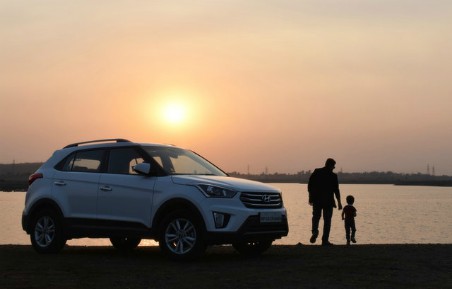If you’ve recently passed your test or have just started learning to drive, you may be eager to get your first car. Owning a car nowadays is very expensive – for new drivers, it can be particularly pricey due to insurance costs, as well as not having a previous vehicle to part exchange. Below are just a few handy tips on how you can afford your first car.
Used car or new car?
First you need to decide whether you want a new car or a used car.
Used cars are almost always cheaper to buy than new cars – in fact, you won’t be able to purchase a new car without spending several thousands of dollars. Used cars can be picked up for several hundred dollars (which is much more affordable for most people). That said, a cheap used car will likely cost you a lot more in the long run both in maintenance and fuel, so bear this in mind.
Where to buy a used car?
The cheapest way to buy a used car is from an independent seller. You can find independent sellers advertising their cars on local selling sites like Gumtree and on Facebook marketplace. You may even see neighbors advertising cars for sale on your street or you may know of friends or family members selling their car.
Buying from a used car dealership is another option and tends to be a little more expensive. There are likely to be dealerships in your area. You’ll also find them advertising cars online.
Cars from dealerships tend to be more reliable (although you should always check reviews just in case) and you’ll always get a written receipt. When buying from an independent seller, there’s more risk that you may get ripped off and you may want to give the car a more thorough inspection. Always take a test drive to check that there are no odd noises or strange warning lights. Also bear in mind that there will usually be some room for negotiating the price.
Where to buy a new car?
You can buy a new car from a new car dealership or directly from the manufacturer. While new cars are a lot more expensive than used cars, they have several advantages beyond being cheaper to run. You’ll always get a warranty on a new car and you’ll usually have the option to customize the car in certain ways to fit your needs (this could include choosing colors, making interior changes or choosing tires).
To save money on a new car, time your purchase right – if a new model is about to be released, the last model will usually be discounted. It’s possible to negotiate the price on a brand new car, however don’t expect to knock as much off the price as you would with a used car (you’ve usually got about 2% leeway).
Buy in cash or take out a loan?
There are two main ways to fund a car: in cash or with a loan. When you buy a car in cash, you don’t have to worry about further installments or interest charges. This can make it cheaper and less hassle than a loan in the long run. However, unless you’re buying a very cheap car, you usually won’t be able to buy in cash and will have to borrow some money. Work out what you think is more suitable and feasible for you.
Buying in cash
If you want to buy in cash but don’t currently have enough in your account, you can always save up the money. Saving up money could take a while, which means you’ll have to go a while without a car, however it could be more rewarding knowing that you’ve bought it with your own money and that you don’t have to worry about loans. Consider setting up a high interest account to help you save up the funds more quickly and be prepared to make a few cutbacks each month so that you can save larger amounts each month.
Using a loan
Car loans are very common for more expensive cars. A dealership may be able to offer ‘finance’ – which involves shopping around for loans for you. Alternatively, you can look for loans yourself, possibly allowing you to find better deals than you might do via a dealership.
When shopping for a loan, consider how large the installments are and how expensive the interest is. Long-term loans may have larger interest rates, resulting in you spending more in the long run. If you’ve got a poor credit score, you may also find that not all lenders accept you and those that do may charge higher interest rates. A good lender won’t try to rip you off. In fact, there are some lenders like Wise Loan that can even help you save up money alongside your loan with nest egg rewards. Try to spend time hunting for these types of loans.
Can parents chip in?
If you’re under 18, it could be a struggle saving up for a car and you may not be able to get accepted by lenders. Consider whether your parents are able to chip in and help you. Even if it’s a case of lending you a small amount of money to go towards a car, it’s still better than nothing. Relying on parents won’t always be an option, but it doesn’t hurt to ask if you’re still in their care.
Long-term costs to consider when choosing a car
When buying your first car, don’t just consider the price upfront. There are many long-term costs to consider when you make your purchase. The include:
Reliability
If you’re buying an older used car, it will likely be less reliable. Parts are likely to be worn and you’ll need to make more frequent repairs. When buying a cheap used car, it’s not uncommon to spend twice as much on maintenance as it initially cost to purchase. Always thoroughly inspect the condition, check the service history and research the model to determine whether a car is likely to be reliable or not.
Fuel consumption
Some cars guzzle a lot of fuel. The cost of this fuel consumption will add up in the long run. Older cars will do less miles to the gallon – when buying a cheap used car, be wary that you may end up spending hundreds of dollars in fuel. By checking the mpg (miles per gallon) of the car, you can determine whether or not it is fuel-efficient.
Insurance
All drivers need auto insurance. Information on your car will be used to determine your car insurance rates. Some cars are deemed to be more prone to accidents or theft – this includes new sports cars or older cars without safety/security features. When choosing a car, consider how it may affect your insurance rates. This guide at Nerdwallet lists some of the cheapest cars to insure in the US.
Auto insurance: the real big cost
Auto insurance for new drivers can be very expensive – in fact, most new drivers spend more in their first year on insurance than they do on the cost of purchasing the vehicle itself. Your car insurance isn’t just affected by the type of car you drive. In fact, there are many other personal factors involved that determine how much of a risk you are such as your age, address and even your job title. Below are some of the biggest ways in which you can save money on auto insurance as a new driver.
· Shop around: Different insurers will offer different rates. Some insurance companies may cater specifically to new drivers and may be able to offer some of the best rates. Insurance comparison sites can be worth using but you shouldn’t rely wholly on these.
· Browse incognito: While shopping around online, cookies are likely to be stored on your browser that may affect the price when you return (you could find that the price has gone up since you last looked). Using incognito mode can prevent you storing these cookies and may help you save money (this is also a handy tip to consider when shopping for other things like vacation deals) .
· Apply for insurance in advance: Apply for insurance a couple weeks in advance before you plan to drive and you could find that your rates are greatly reduced. When you’re desperate for insurance the next day, insurers are more likely to take advantage of this and offer higher rates. This does require a bit of forward planning, but it could save you a lot of money.
· Pay annually: If you choose to pay a single annual installment, it will usually be a lot cheaper than twelve monthly installments. A lot of people don’t have the money upfront to pay an annual installment, but if you do it’s worth taking advantage of this.
· Add an experienced driver. Sharing your insurance policy with an experienced driver could further cut insurance costs. This could be a parent or older sibling.
· Increase your excess: The excess (or deductible in some cases) is the amount of money you’re willing to pay out of your own pocket in the event of an accident before insurers have to pay up. Opting for a higher excess can result in lower insurance rates. This does mean that any accident will be more expensive for you, so make sure you have money set aside for this excess.






